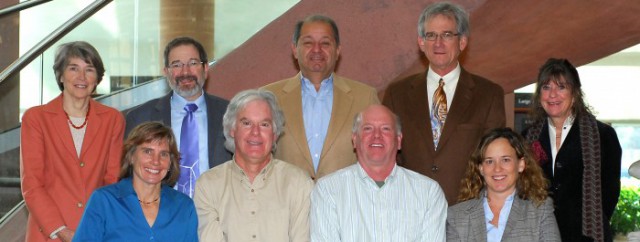
In its last official gathering on Nov. 12, the late Boulder City Council approved a set of regulations and rules governing the sale of retail cannabis to adults inside the city of Boulder. If good legislation is the kind where nobody comes away completely happy, then this was a success.
After a strained meeting two weeks earlier, both staff and council came to this session basically on the same page. City Manager Jane Brautigam began by announcing that a licensing clerk and a marijuana coordinator would be hired to help facilitate applications, which the city will begin accepting Jan. 2.
Existing medical dispensaries seeking to convert to adult retail should have no trouble obtaining a license transfer. Since earlier recommendations included a June 1 date to begin processing adult retail licenses, this is good news for consumers and the city’s tax coffers.
The most contentious discussion concerned two existing medical dispensaries, The Farm and Dandelion, seeking to convert or co-locate in mixed-use developments. During the public testimony, residents near the businesses and the dispensary owners presented their arguments. Though council had tentatively voted two weeks earlier to grandfather those conversions, in the end, there weren’t enough council votes on this night.
After a long process that began in the spring, the council vote was unanimous, and Councilman George Karakehian quipped that he was really happy not to dream about cannabis legislation for awhile. But the new council, which includes Karakehian, will be watching the newest retail industry in town closely, and almost certainly will wind up tweaking and refining rules and regs as Boulder begins selling cannabis to adults. It’s not an outcome that pleases everyone, but it’s a start. Precedent, here we come.
There certainly needs to be a conversation about adolescent and teen usage of cannabis, but it needs to be an honest one. A recent Denver Post story ran beneath the provocative headline “Pot problems in Colorado schools increase with legalization” didn’t help. Reporter Nancy Lofholm talked with administrators and resource officers who offered evidence of a rise in disciplinary problems associated with middle-schoolers and adolescents bringing cannabis to classrooms.
“School resource officers, counselors, nurses, staff and officials with Colorado school safety and disciplinary programs are anecdotally reporting an increase in marijuana-related incidents in middle and high schools,” she writes.
The problem here is that word “anecdotally.” I’m sure the officials aren’t lying, but the story itself mentions that schools don’t isolate marijuana from general drug violations, so there are no real numbers to work from. But “anecdotally,” officials are seeing the increase and then blaming legalization, which, they say, is sending teenagers the message that cannabis is OK and a better substitute than alcohol.
To me, that’s a leap in logic I don’t want to take. And is that really the story? As you keep reading the Post article, you find that the real news is near the bottom. It’s where middle-schoolers or adolescents are getting cannabis. It’s not from dispensaries, nor from the hoody guy at the end of the alley. They’re getting it from their parents, from their own homes, and “anecdotally,” officials admit the kids in some cases are just showing off.
If you only read the headline and the first few paragraphs, you might come away thinking that more kids are coming to school with pot because it’s legal.
But the problem is really about something that government on any level can’t legislate and doesn’t want to talk about: Irresponsible parents. Teen access to cannabis can be a problem. But if kids are getting it at home, whether cannabis is legal or not has nothing to do with it. And perhaps some of that education money aimed at educating teens might be better spent on adults.
And in the absence of hard numbers about legalization and teen use, they could perhaps look up some real ones. First is a U.S. Centers for Disease Control report dated September 2010. “Federal officials contend that the legalization of medical marijuana encourages teenagers to use marijuana and have targeted dispensaries operating within 1,000 feet of schools, parks and playgrounds,” the authors write. “Our results are not consistent with the hypothesis that legalization leads to increased use of marijuana by teenagers.”
Or this one, from a University of Denver study from last year.
“There is anecdotal evidence that medical marijuana is finding its way into the hands of teenagers, but there’s no statistical evidence that legalization increases the probability of use,” said Daniel I. Rees, a professor of economics at the University of Colorado Denver.
Cannabis legalization isn’t going to be easy. As Boulder City Council found out over the last few months, there are lots of unsolved questions and possible pitfalls. The debate should be vigorous and stimulating. News outlets are increasingly pressed these days, with fewer editors and less oversight. Still, inaccurate headlines and anecdotal stories won’t further the argument, no matter what side of the issue you’re on.
Send tips, suggestions and criticisms to [email protected].
Respond: [email protected]














